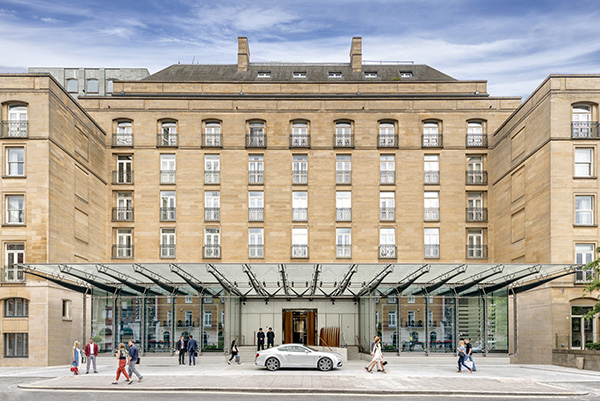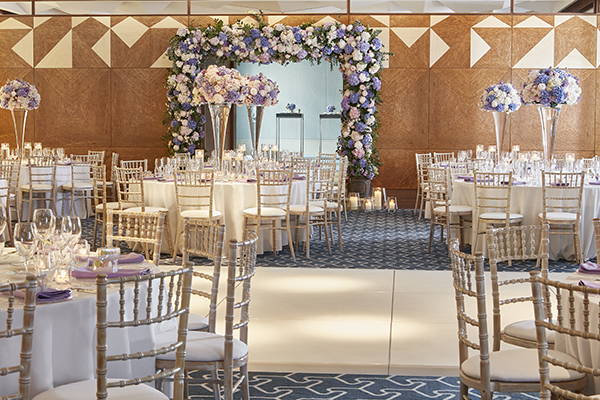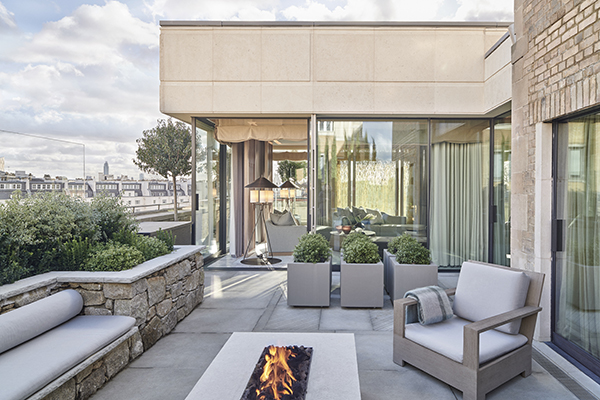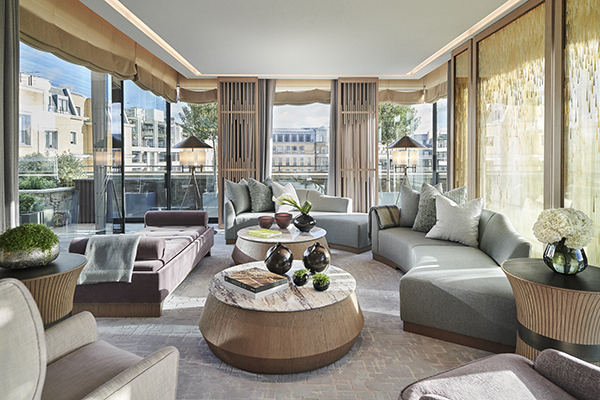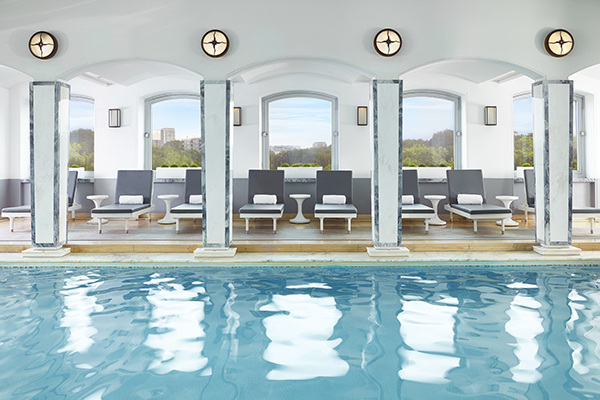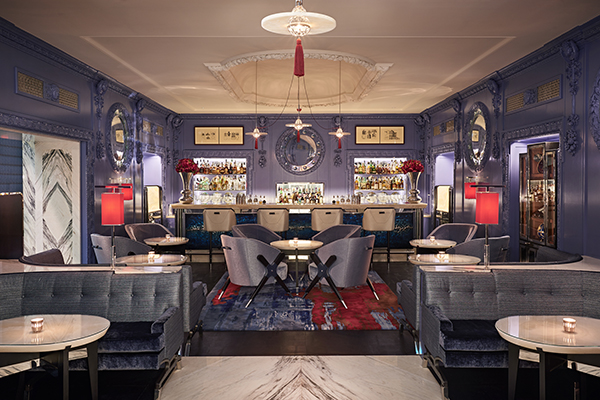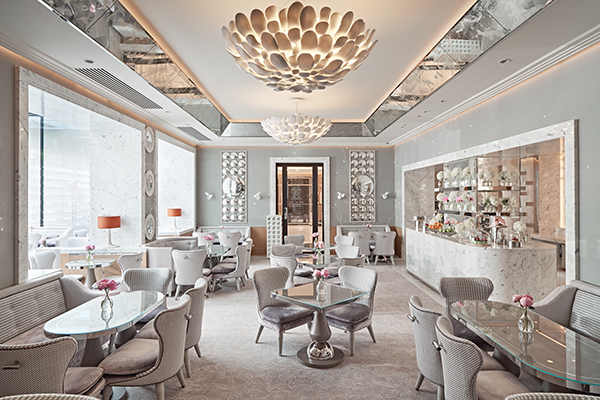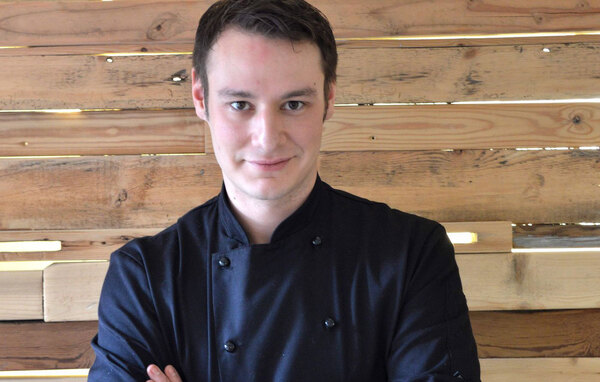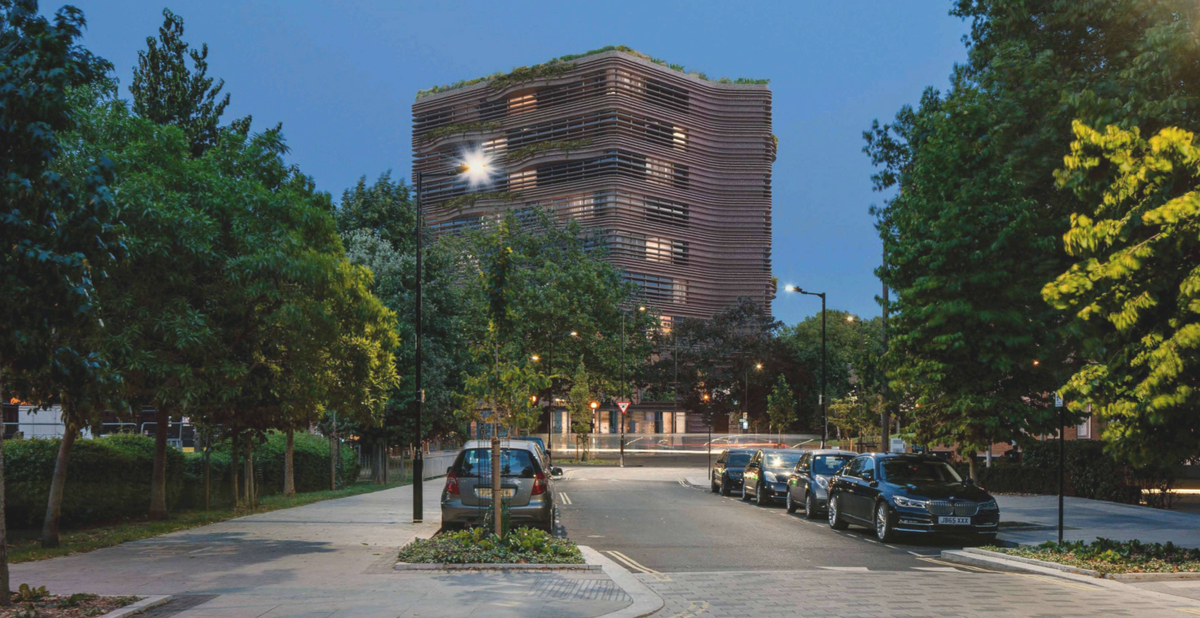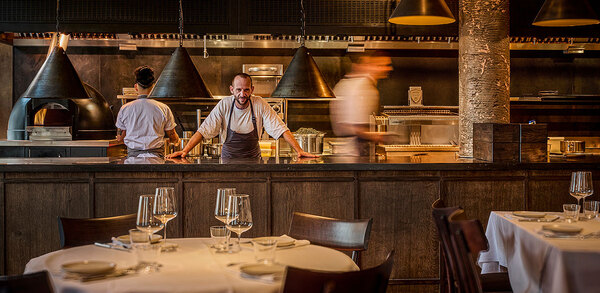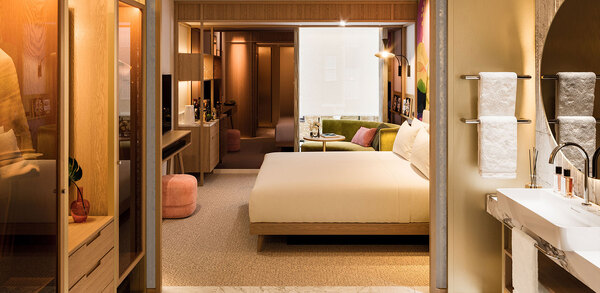Guiding light: Knut Wylde, general manager of London's Berkeley hotel, offers his wisdom on navigating the route to the top
From London's Grosvenor House hotel to a range of properties across the world, Knut Wylde has a wealth of experience in high-profile, luxury hotels. He tells Chris Gamm how he's using that knowledge to make the Berkeley in Knightsbridge one of the capital's most innovative, forward-thinking destinations
Kn
Itâs equally inspiring because his career is a case study for the opportunities that exist within hospitality â" to travel, develop and quickly rise up the ladder â" as well as a blueprint for aspiring hotel GMs to learn from.
It was while he was doing work experience, when at school in his hometown of Kiel, Germany, that Wylde first knew he wanted to become a hotel general manager.
âI spent one week in an advertising agency and one in a hotel â" Hotel Wiking. It was nothing special, but I fell in love,â he says.
With a taste for the industry, he spent the next four years studying at tourism management school, earning a hotel management diploma and completing his apprenticeship at Hotel Vier Jahreszeiten in Hamburg. His first full-time position brought him to London, where he joined Grosvenor House as receptionist in September 1996.
âGrosvenor House was an eye-opener. Hotel Vier Jahreszeiten was one of the leading hotels in Germany, with a very high average rate. I thought I knew it all. Then you come to London and itâs a different ball game. The rates were three times as much, the occupancy was double and the volume going through Grosvenor House was incredible.
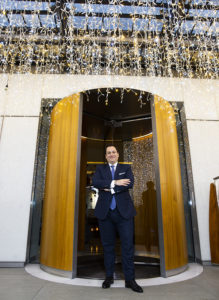
After nine months, Wyldeâs next move to the Lanesborough, as assistant front office and night manager, was a pivotal one, as it was where he met his mentor, then managing director Geoffrey Gelardi.
Wylde was encouraged to continue learning, with Gelardi giving him time off and even paying for his flight to America after Wylde won a scholarship to Cornell University.
This wasnât the only role his mentor played in his development. âGeoffrey encouraged me to travel and take on other positions within [the operating company] Rosewood,â says Wylde. âHe pushed me out into the Middle East and the Caribbean and said, âGo and gain the experiencesâ, which was fantastic.
âIâve experienced different kinds of operations â" city centre, resorts, small, large, deserts, mountains, islands. Each have very different needs and demands on running a hotel. I always thought that to be a successful general manager, you need to pick up the best elements of all these kinds of operations â" to build your little puzzle.â
In March 2002 Wylde returned to the UK, where he spent four years at the Savoy as front of house manager, before moving to the Maldives for a year as resident manager at the One & Only Reethi Rah resort.
This experience reflects in Wyldeâs advice for aspiring future GMs: âTry to work in different types of operations. Not everything I learned in the Maldives is relevant to a hotel in London, but there are some experiences I look back on and think, âOK, that could work hereâ.
As well as not rushing to take a job too early, Wyldeâs other major piece of advice is to stick to quality operations and donât get tempted by the wrong organisation.
âBefore I was a GM, I was a number two in different kinds of operations for about 10 years. Maybe I could have been a GM a little earlier, as there were opportunities, but I always wanted to stay very true to myself and stick to the high-end, five-star, luxury market.
âThere was just never the opportunity as a GM in that role. I wanted to learn and [I could learn more] being a number two in a country house hotel like Coworth Park [where he was director of operations], one of the most iconic hotels in the world, or at Claridgeâs [as hotel manager], or when I worked for a private membersâ club in Scotland [as director of hospitality at Loch Lomond Golf Club]. I think going through these different positions over 10 years really enabled me to be a better GM than after two or three years as a number two.â
A lifetime of learning and development was put into practice at the Berkeley, where Wylde joined as general manager in February 2016, and he quickly set about making his mark on both the property and the London luxury hotel market.
His arrival coincided with a huge investment project, enabled by new Qatari owners, which acquired a 64% stake in the Berkeleyâs parent company, Maybourne, in April 2015, joining forces with Northern Irish property investor Paddy McKillen, who owns a 36% share.
âWhen I moved from Claridgeâs, I arrived with the builders and bulldozers,â says Wylde.
The Berkeley had relocated from its original Piccadilly site in 1972. The vision for the refurbishment was to manoeuvre the property into the 21st century and upgrade the hotel to a level where it stands apart from its competition.
âWe are one of the younger hotels and were always seen as one of the quirky, innovative, creative properties. This was true in a lot of the elements we offer to our guests in terms of services. But the product was not necessarily that level anymore. It was important to bring it up to a very high standard of five-star luxury, with a bit of a modern, contemporary edge.â
âWeâre just doing the last set of rooms now. Then when we finish that, maybe we have to start at the rooms weâve done a few years ago to make sure we maintain that level of product.â
Four designers were engaged to create a different style and feel on each floor, including John Heah, whose use of Scandinavian furniture alongside Asian flooring and fabrics can be found in the first-floor bedrooms.
Robert Angell, meanwhile, who was involved with the design of the original Blue Bar when he worked for David Collins before going solo, was responsible for the ground floor, including the lobby, the refresh of the Blue Bar, the Collins Room (formerly the Caramel Room) and the redesign of the restaurant, Marcus, overseen by Marcus Wareing.
André Fu, who designed the Upper House in Hong Kong and the Berkeleyâs Opus Suite in 2012, this year delivered two Pavilion suites, converting underused terraces into stunning panoramic entertaining spaces.
âIt was a fantastic vision of Paddy McKillen to bring in these different design elements,â says Wylde.
The investment made in the property, the effect that has had on occupancy, coupled with the ability to demand higher rates, has had a significant impact on the hotelâs performance.
âWe had a fantastic year â" the best in the history of the Berkeley. Weâve grown 17% year-on-year, which is incredible. These four big suites demand a significant rate, with a rack rate of £18,000 plus VAT. The occupancy of the suites has been more than 50% throughout the summer. Having them occupied on a fairly regular basis easily adds £100 per suite onto our average room rate.â
âI report directly to Paddy McKillen and we donât have a chief executive between us,â he says. âWe speak by text message and phone. Itâs a refreshing way to operate. The formality and bureaucracy has been taken out of our day-to-day life. We have more time to spend with our guests and staff, rather than writing management reports that nobody reads.
âThereâs an entrepreneurial spirit in the business. Mr McKillenâs very much a visionary and happy to take a risk by letting us create and be innovative and have fun.â
Wylde cites the example of pitching McKillen for the investment to convert a 2.5 sq m business centre into the multi-sensory bar experience, Out of the Blue, over a cup of coffee.
âIt would take many companies a long time to get this,â he says. âWe had it done in half an hour. It is exciting and refreshing that you can get decisions that quickly. Itâs a big competitive edge for us.â
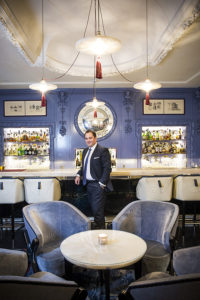
That edge is especially pronounced when you consider the Berkeleyâs history of introducing market-leading innovation.
The original property was one of the first hotels in London to have air conditioning in the 1920s and double glazing in the 1930s, while the current site boasted Londonâs first rooftop swimming pool in the 1970s. The pool is the location of much of the recent innovation, including a winter cinema and rooftop yoga and hula-hoop classes during the summer.
âThey started as PR, but all sold out. The phone doesnât stop ringing and weâre starting to earn a little bit of money on the side.â
Cutting-edge design isnât just a feature of the hotelâs bedrooms and public spaces, but also its plates. The fashion-led afternoon tea â" Prêt-à -Portea, in which the latest catwalk designs are recreated in biscuits, cakes and tarts â" captures the Berkeleyâs sophisticated but cheeky character.
âMy pastry chef is the only one in the world who sits in the front row at London Fashion Week next to [ex-Vogue editor] Anna Wintour,â he says. âIf Iâd removed scones at Claridgeâs, there would be riots. Here, it is so well received. The craftsmanship that goes into a coat, cowboy boot or Prada handbag takes so much more time than baking a scone or making a cucumber sandwich. Itâs become iconic.â
As well as changing with the seasonsâ latest designs, recent updates include presenting Prêt-à -Portea on Berkeley-branded lit catwalks to make them more visually appealing for Instagram-snappers.
âWeâre constantly evolving and working on what we can do next year. Our competition doesnât stand still and other hotels jumped on the bandwagon with art teas and opera teas. Itâs so important to have fun. Put a smile on a guestâs face and the rest will fall into place.â
Itâs for this reason that Wylde introduced the âfreedom to surpriseâ programme, in which staff are encouraged to find creative ways to delight guests.
âA room attendant saw a Mars bar wrapper in the bin, so bought two more for the guest as they werenât in the mini bar. We encourage the teams to think outside the box and go and do stuff. We like to throw out the rule book a little bit. Tiny little things are so important. One of the biggest things is relevance in our world. Putting a bottle of Champagne in a guestâs bedroom is a cop-out â" we all get pretty good deals on Champagne. Certainly, when I travel on business, I would rather have two big bottles of sparkling water, a Red Bull and an Alka Seltzer to keep me going.â
âSaying âtheyâre a VIP3, theyâll get fruit, flowers, chocolate and waterâ is totally not what should happen these days. Speak to their PA, use LinkedIn, and find out something thatâs relevant and special.
âWe have an owner with an amazing vision for design. Our role is to really bring that to life, to create the experiences that make our guests feel the best and to create the loyalty to make them come back and spend money with us rather than our competitors.â
Knut onâ¦
… Christmas lights
âWhen we had this beautiful new entrance, we decided it deserved more attention around Christmas. It lends itself to it. The glass canopy and the carbon fibre beams were designed by Lord Richard Rogers, the world-renowned architect behind the Pompidou Centre in Paris and the Lloydâs building.
âHe designed these lights for us. They were so well received last year, we decided to put them up again. It must have been one of the most photographed and Instagrammable Christmas decorations.
âPeople come around the corner and are like, âwowâ. There are so many different elements. If a car is parked underneath, the lights reflect on the car. Or when a gust of wind comes around the corner, they start moving. Itâs called Snowfall. Itâs most magical.â
… attracting more young people to hospitality
âWe need to make sure the industry is attractive to young people. Yes, we work hard, and yes, there are unsociable hours â" but itâs one of the most rewarding industries. We need to change peopleâs perceptions a little bit.
âWe have modelled our work experience on my apprenticeship back in Germany. You have 10 different departments you visit during your five days with us. Youâre not with the guy who peels potatoes, youâre with the executive chef to call the orders on the pass. If youâre with housekeeping, youâre not cleaning the toilets, youâre with the executive housekeeper attending their meetings and checking the top suites for a VIP arrival.
âWe need that young kid to go back to school and say, âI had the most amazing time. Itâs so versatile, thereâs so many areas you can work in, it was so much fun being in the 300 sq m suites checking the room for so-and-soâs arrivalâ. You want to create that excitement so they go home and tell Mum and Dad, âI want to work in hotels. I donât want to sit behind a computer all day punching numbers. I want to be somewhere where every day will be different, where thereâs excitement, drama, tears, laughter, where I donât know whatâs going to happen tomorrow.â Thatâs what we have to create.â



